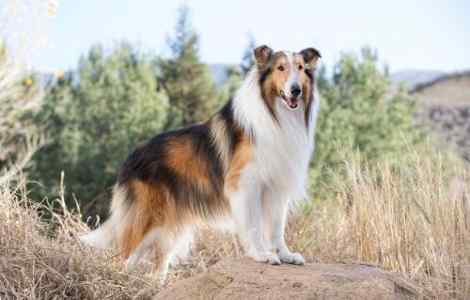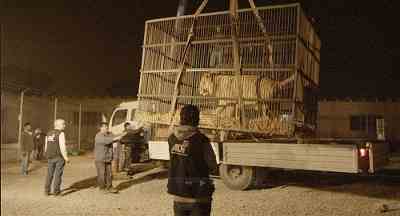Bolivian Lions Ready to be Released
A family of eight African Lions that had previously spent years locked inside a cramped 8 foot by 12 foot circus trailer in Bolivia will win their ultimate freedom on April 14, 2011, as they are released into a 20 acre natural habitat at The Wild Animal Sanctuary (TWAS) in Colorado.
The eight Lions scheduled for release were rescued from circuses throughout the South American country after eight of the traveling shows failed to comply with Bolivia’s new law banning the use of animals in circus acts.
A total of twenty five Lions were confiscated through the actions of Animal Defenders International, and were subsequently airlifted to the non-profit animal sanctuary in Colorado earlier this year.
[ Also Read: See African Cats, Save the Savanna ]“This pride is the first of four distinct prides that will be released into specially built large acreage habitats over the next two months. They’ve all come from incredibly deplorable conditions, so it will be very gratifying to see them roaming freely in wild open spaces for the rest of their lives,” said Pat Craig, executive director of TWAS.
[ Announcement: Thought Leaders Invited to Write for RMN News Site ]Since their arrival on Feb. 16, 2011, all 25 Lions have been temporarily housed in a heated, 15,000 square foot biosphere-like building complete with grass, trees and other natural amenities.
The unique building was built just prior to the Lions’ arrival in order to provide a controlled setting where the Lions could recover and acclimate to their new home.
Over the past two months, the Lions have been gaining weight, building muscle and receiving much needed medical attention. Many of the Lions required major dental surgery and other medical procedures due to years of neglect and mistreatment.
[ Also Read: Shark Populations Dwindle; Face Extinction ]The Sanctuary’s staff and volunteers have been working around the clock to ensure the Lions are healthy and ready to be released into their new habitats. “They are doing great! It is remarkable to see just how much they’ve improved in such a short period of time,” said Pat Craig about the wellbeing of the Lions.
The Lions range in age from three cubs that are only 4 months old, to the oldest male who is now 15 years in age. Once all the Lions are rehabilitated and roaming freely, they will remain at the sanctuary for the rest of their lives, which could be up to 23 years.
On average, it costs nearly $8,000 per year to feed, house and care for a Lion – bringing the total to provide a permanent home for the Bolivian Lions to nearly $200,000 a year.
To help offset the expense, the non-profit organization utilizes an adoption program where interested people can help the sanctuary provide a safe home for the Lions.
More information on the program is at www.wildanimalsanctuary.org.
💛 Support Independent Journalism
If you find RMN News useful, please consider supporting us.




